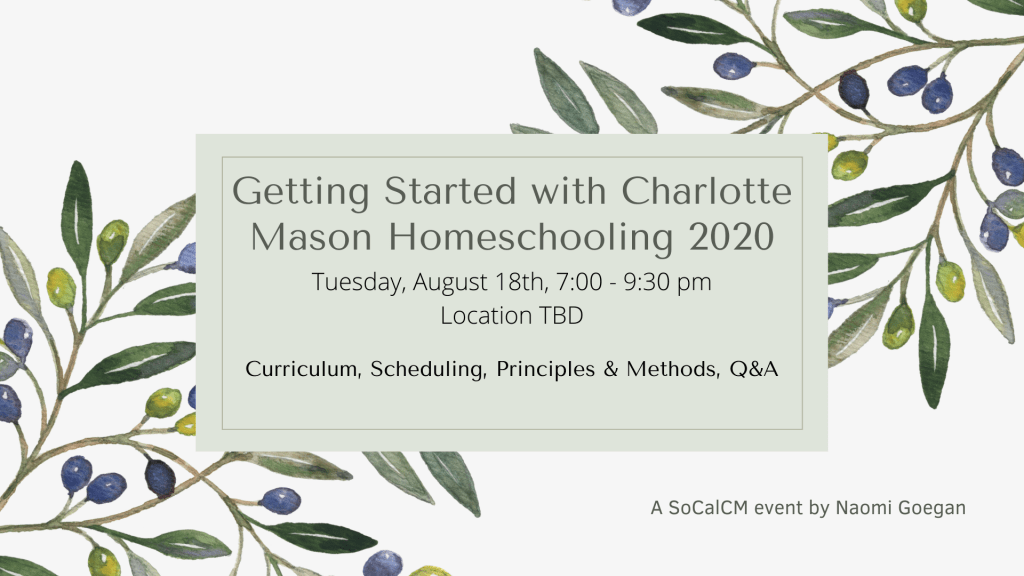
- This event has passed.
Getting Started with CM 2020
August 18, 2020 @ 7:00 pm - 9:30 pm

It’s crunch time and people need to figure out what they’re doing and how they’re going to do it. Whether they came upon Charlotte Mason via social media, a friend, or some other way, it’s hard to “figure it all out” and get started on such short notice. Looking online can often take up hours of time and so. many. options that can lead to decision fatigue.
This event will be hosted by Naomi Goegan, CM homeschooling mom of 13 years with four children ages 18, 16, 12, and 9. We’ll be looking at curriculum, scheduling, principles, methods, and have a brief time of Q&A.
This event is geared towards new people looking to learn how to get started Charlotte Mason Homeschooling, but also open to seasoned moms.
Registration is required for this session. To register, please fill out the following form. It will most likely be an online zoom session, depending on the number of participants. Registrants will be emailed event details once finalized.
